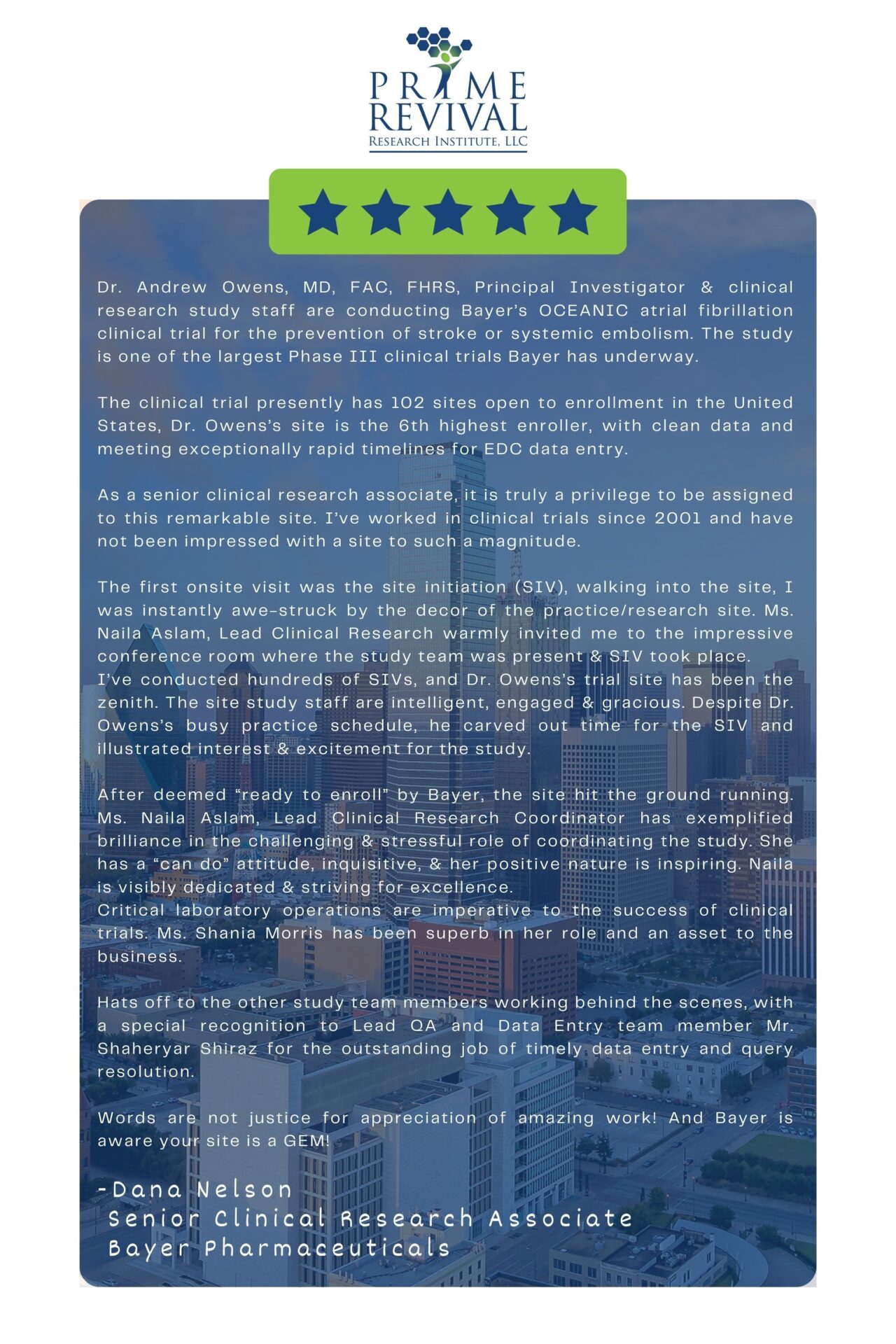Last Updated on March 27, 2024
 The heart is a remarkable organ that works tirelessly to pump blood around the body. However, certain heart conditions such as atrial fibrillation (AFib) and congestive heart failure can significantly impact an individual’s health. While managing these conditions can be challenging, there is hope as heart failure clinical trials are actively enrolling potential patients in Texas.
The heart is a remarkable organ that works tirelessly to pump blood around the body. However, certain heart conditions such as atrial fibrillation (AFib) and congestive heart failure can significantly impact an individual’s health. While managing these conditions can be challenging, there is hope as heart failure clinical trials are actively enrolling potential patients in Texas.
In this blog, we will explore the relationship between AFib and congestive heart failure, their symptoms, and the best treatment strategies for managing these conditions.
Understanding AFib and Congestive Heart Failure
AFib, also known as atrial fibrillation, is a condition that occurs when your heart rate is irregular and often rapid. This can ultimately increase the risk of stroke, heart failure, and other heart-related complications. It is estimated that AFib affects approximately 2.3 million individuals in the United States.
Congestive heart failure is a condition where the heart cannot pump enough blood to meet the body’s needs, causing fluid buildup in the lungs and other organs. Nearly 60% of heart failure is caused by various factors such as coronary heart disease, hypertension, diabetes, atrial fibrillation, obesity, excessive alcohol intake, and sleep apnea.
 The Relationship between AFib and Congestive Heart Failure
The Relationship between AFib and Congestive Heart Failure
AFib and congestive heart failure are closely related because they share similar disease mechanisms and risk factors. The shared risk factors include:
- Diabetes
- Obesity
- High blood pressure
- Existing heart problems
- Sleep apnea
- Increasing age
How can AFib Cause Congestive Heart Failure?
AFib can cause congestive heart failure in several ways.
- AFib can make the heart beat too fast and irregularly, which reduces the amount of blood that fills and leaves the heart chambers. This can lower the cardiac output and blood pressure, leading to inadequate blood flow to the organs and tissues.
- AFib can cause the heart muscle to stretch and weaken over time, impairing its ability to contract and relax normally. This can result in heart failure, where the heart cannot pump enough blood out of the ventricles.
- AFib can increase the pressure and volume in the atria, causing them to enlarge and stiffen. This can affect the filling of the ventricles and increase the pressure in the lungs. As a result, the heart cannot relax and fill properly, causing heart failure.
How Congestive Heart Failure Causes AFib?
Congestive heart failure (CHF) can also cause AFib in several ways.
- CHF can damage the heart muscle and valves, creating scar tissue and inflammation that can disrupt the normal electrical signals of the heart. This can trigger AFib episodes.
- CHF can also cause structural and neurohormonal changes that increase the risk of developing AFib.
Recognizing the Symptoms: AFib and Congestive Heart Failure
AFib symptoms include:
- Chest pain
- Increase in heart rate
- Breathlessness
- Palpitations
- Fatigue
Congestive heart failure symptoms Include:
- Difficulty breathing
- Trouble breathing while lying down
- Waking up due to shortness of breath
- Tiredness
- Swelling
- Expansion of the stomach
Treatment of AFib and Congestive Heart Failure
AFib and congestive heart failure are both manageable conditions. Their management depends upon the severity and type of each condition.
Treatment of AFib
Commonly prescribed medications to manage AFib include:
- Anticoagulants: These medications help prevent blood clots from forming in the heart and reduce the risk of stroke and other thromboembolic events.
- Antiarrhythmics: Medications such as sodium channel blockers, potassium channel blockers, and calcium channel blockers help control the heart rhythm and restore or maintain a normal sinus rhythm.
- Heart Rate Control Drugs: These medications help control the heart rate and prevent it from becoming too fast or too chaotic. They can also help improve heart function and blood flow and reduce the risk of heart failure.
Also Read: How Treatment Improves Atrial Fibrillation Life Expectancy
Treatment of Congestive Heart Failure
Medications to treat congestive heart failure include:
- ACE Inhibitors and ARBs: They lower blood pressure by widening blood vessels, which reduces the workload of the heart and helps prevent or delay the progression of heart failure.
- Beta-blockers: They slow the heart rate and decrease the strength of heart muscles to contract.
- Diuretics: These medications help remove excess fluid and salt from the body, which reduces the pressure and volume in the heart and lungs. They help relieve symptoms such as shortness of breath, swelling, and weight gain.
- Aldosterone antagonists: They help reduce fluid retention, lower blood pressure, and prevent or reverse some of the damage to the heart muscle caused by heart failure.
Apart from medications, there are different procedures that are used to treat AFib and congestive heart failure.
- Catheter Ablation: This is a minimally invasive procedure that uses radiofrequency energy to create scars in the heart tissue that block the abnormal electrical signals that cause afib. This helps in restoring the normal heart rhythm.
- Pacemakers: These are small devices that are placed beneath the skin. They can monitor and regulate the heart rate and rhythm and deliver electrical shocks or pacing to correct any abnormalities. Pacemakers can help treat slower heart rate and heart block that can occur in some people with AFib and CHF.
Management of AFib and Congestive Heart Failure
Management of AFib and congestive heart failure includes incorporating certain lifestyle changes in your life as they can lower the risk factors and improve the outcomes of both AFib and congestive heart failure.
- Eating a healthy diet
- Limiting salt and fluid intake
- Avoiding alcohol and caffeine
- Quitting smoking
- Managing stress
- Maintaining a healthy weight
- Exercising regularly
- Getting enough sleep
It is also extremely important to do routine health check-ups and monitor heart rhythm for early detection of AFib and congestive heart failure, especially for individuals with risk factors like high blood pressure, diabetes, or a family history of disease.
Also Read: Heart Failure Self-Care: Revitalizing Heart Health
Takeaway
In conclusion, AFib and congestive heart failure are closely interconnected. By understanding the risks, recognizing the symptoms, and taking proactive steps to manage heart health, individuals can collectively tackle these conditions and make strides toward a healthier future.


 The Relationship between AFib and Congestive Heart Failure
The Relationship between AFib and Congestive Heart Failure